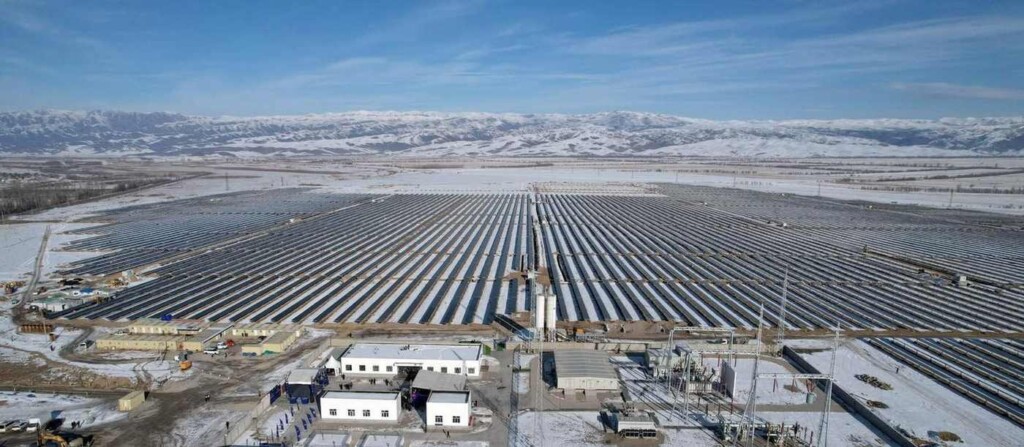
– credit, President.kg
On Christmas Eve, the Central Asian nation of Kyrgyzstan inaugurated its first solar power plant, one that will power a small city and cut 120,000 tons of CO2 emissions annually.
The 100-megawatt installation will generate 210 million kWh of clean electricity annually, and represents one of the largest foreign investments into the country of any kind since independence.
It’s seen as the start of a big push to de-carbonize, with outside investors having inked 12 other agreements for solar and wind resources that will bring 5 gigawatts of clean energy online in the coming decades.
Kyrgyzstan’s energy mix is already one of the most renewable in the world, with some 72%-84% of demand met by hydropower. However, input from fossil fuels can climb just as high depending on demand level and season, since many rivers lose flow rate during winter.
Speaking at the launch ceremony, President Sadyr Japarov described the project as signaling a new phase in the country’s energy transition and its commitment to sustainable development.
“The opening of the solar power plant marks the beginning of an important stage in strengthening our country’s energy independence and developing renewable energy sources,” Japarov said.
“We now recognize that without the active development of renewables, it is impossible to fully ensure stable electricity supplies for both the population and economic sectors.”The new solar plant was built in the most populous region of the country, approximately 60 miles east of the capital, Bishkek. The collapse of the Soviet Union left the local economy of Kemin district largely rudderless, but the recent urban growth in the district’s largest city led to increasing energy demand that this solar farm aims to satisfy. First Solar Power Plant in Kyrgyzstan Will Save 120,000 Tons of Carbon Emissions Every Year

_15595.jpg) (Image: INL)
(Image: INL)